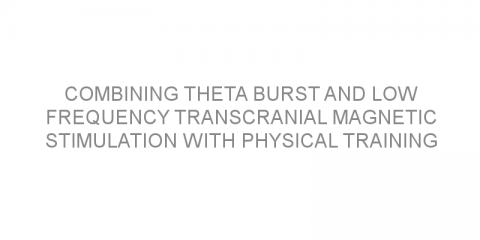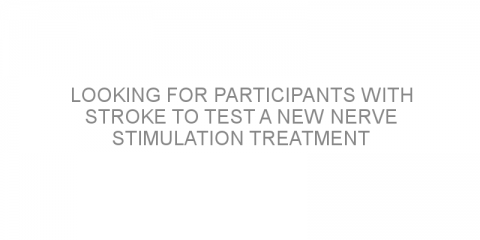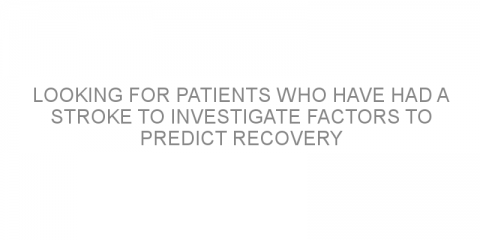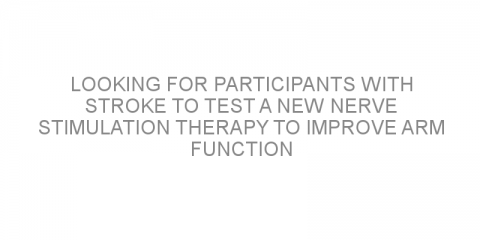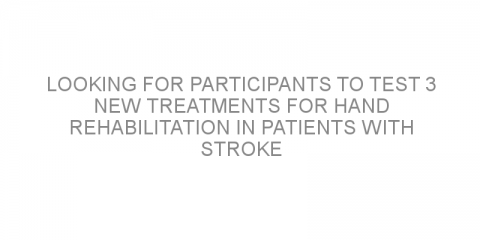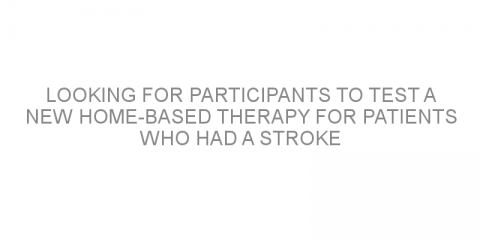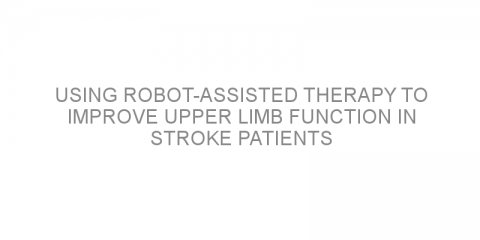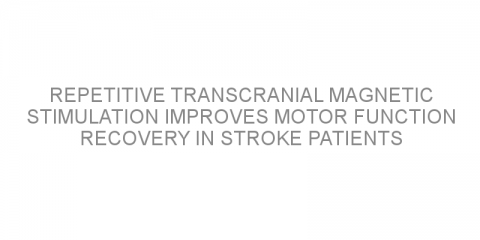In a nutshell This study investigated the effect of theta-burst stimulation (TBS) and low-frequency magnetic stimulation (LFMS) in patients with stroke and arm impairment. Researchers suggested that TBS and LFMS combined with physical therapy improved arm function in these patients. Some background Stroke is one of the main causes of chronic...
Read MoreNature of disability-Motor disability-Hand and/or arm weakness Posts on Medivizor
Looking for participants with stroke to test a new nerve stimulation treatment
In a nutshell This trial is examining a new treatment involving nerve stimulation for stroke survivors with arm/hand paralysis. The main outcome to be measured will be the change in wrist movement. This study is being conducted in New York, US. The details Stroke is the fifth leading cause of death in the US. A common side effect of stroke is weakness...
Read MoreLooking for patients who have had a stroke to investigate factors to predict recovery
In a nutshell This trial is examining the predictive factors for stroke recovery. The main outcomes to be measured will be the change in hand movements after the stroke. This study is being conducted in Baltimore, Maryland, US. The details During a stroke, brain cells die due to the limited blood flow to the brain. When this happens, the abilities...
Read MoreLooking for participants with stroke to test a new nerve stimulation therapy to improve arm function
In a nutshell This trial is examining the effectiveness of transcutaneous vagus nerve stimulation (TVNS) and robotic training to treat arm disability after stroke. The main outcome to be measured will be the change in muscle activity before and after treatment. This study is being conducted in New York, United States. The details Often patients...
Read MoreLooking for patients with stroke to test a new rehabilitation treatment
In a nutshell This trial is examining the effectiveness of a new robotic arm rehabilitation treatment in patients with stroke. The main outcome to be measured is the change in arm movements. This study is being conducted in Washington DC, US. The details Stroke is one of the main causes of death in the US. 95% of patients with stroke experience some...
Read MoreLooking for participants to test 3 new treatments for hand rehabilitation in patients with stroke
In a nutshell This trial is looking to compare the effects of three different therapies on recovery of hand function after a stroke. The main outcome to be measured is the change in hand function. This study is being conducted in New Jersey and Ohio, the US. The details After a stroke, patients often experience muscle stiffness on one side of the...
Read MoreLooking for participants to test a new home-based therapy for patients who had a stroke
In a nutshell This trial is examining the effectiveness of home-based telerehabilitation with Bilateral Arm Training with Rhythmic Auditory Cueing (BATRAC). The main outcome to be measured is time and quality of movement and the ability to hold a weight. This trial is recruiting in Baltimore, Maryland, United States. The details Patients with...
Read MoreLooking for patients to test a new treatment for arm spasticity after stroke
In a nutshell This trial is examining the effectiveness and safety of Daxibotulinumtoxin A (DAXI) in the treatment of arm stiffness after a stroke. The main outcome to be measured is the change in muscle strength. This study is being conducted in California, Connecticut, Florida and Kansas, the US. The details Patients who had a stroke often...
Read MoreUsing robot-assisted therapy to improve upper limb function in stroke patients
In a nutshell This study compared proximal robotic rehabilitation to distal robotic rehabilitation at improving upper limb function in stroke patients. The authors concluded that distal robotic rehabilitation may be more effective, particularly at improving distal upper limb function and strength. Some background It is common among stroke patients to...
Read MoreVirtual reality in stroke rehabilitation
In a nutshell This meta-analysis (an analysis of data combined from several similar trials) examined the benefit of implementing virtual reality technology in the rehabilitation of patients with a motor disability following stroke. Some background More than half of stroke survivors continue to experience motor deficits (loss of muscle strength or...
Read MoreRepetitive transcranial magnetic stimulation improves motor function recovery in stroke patients
In a nutshell This meta-analysis (an analysis of data combined from several similar studies) investigated the effect of repetitive transcranial magnetic stimulation (rTMS) on upper limb (arm and hand) motor function in patients recovering from a stroke. Some background Many stroke patients suffer long term disabilities, such as impaired motor...
Read More
